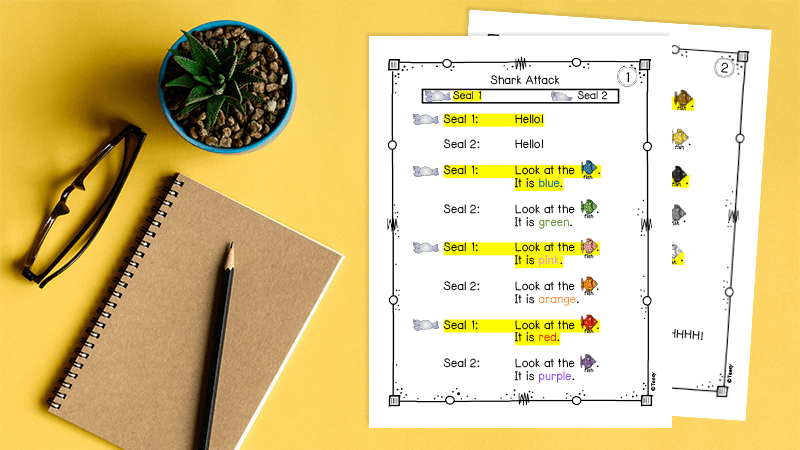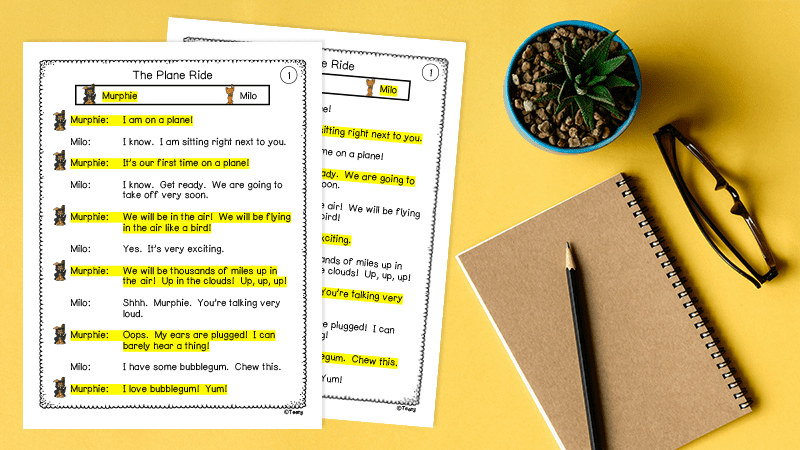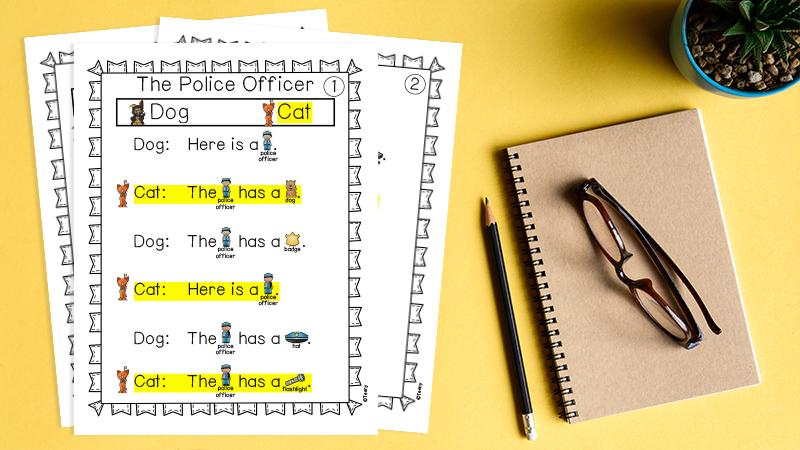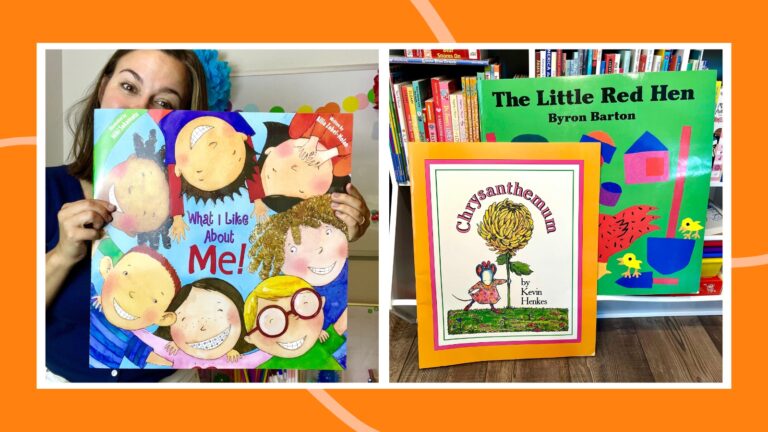Reader’s theater is the best way I have found to have meaningful, purposeful, and engaging fluency practice in my first grade classroom. When I first heard about reader’s theater, I imagined the kids sitting quietly, holding scripts, and taking turns reading. I knew there was no way my primary students could do this. It won’t work for me because it’s for upper grade kids. Thanks, but no thanks.
But I couldn’t get it out of my mind. So I started searching for appropriate reader’s theater for a primary classroom, but I didn’t find much. That’s why I decided to write my own. (You can get three of my reader’s theater scripts by submitting your email here.)
The structure of a primary reader’s theater play

I settled on two-page leveled plays. Each play has just two characters so that kids can partner read. Many of the words are those they practice regularly, and some of the words have been replaced with images to help with skill building.
How primary reader’s theater works
Every year, no matter the class, my kids beg to do these plays that I’ve written. They cheer whenever I bring out a new set. However, in typical kid fashion, they will read and reread the same play over and over again without complaint. Beginning readers are practicing their fluency, expression, and accuracy each and every time. Instinctively, they are trying to read the play better than the time before. We use our plays to practice fluency as a whole class, during guided reading groups, and during centers. They are also great to use at Family Literacy Night.
Reader’s theater transforms my primary students

My kids practice plays during Fun Friday, when they could be playing with LEGO bricks or creating with Play-Doh. They ask to take them to recess! I’ve been teaching for a long time, and this happens every single year. I’m telling you, these plays are magical. My most reluctant and shy students will practice a play with a friend and then come up in front of the class to perform. Language learners, students with special needs, and struggling readers have all surprised me with their willingness to be in front of the class reading a play. I am thrilled when a student who lacks confidence in their reading is excited to read a play. Watching a student who struggles with speech get up in front of the class and speak the lines that I have written is incredible. Reader’s theater has transformed my students year after year.
Curious and want to try one of my scripts? I’m sharing three with WeAreTeachers readers! Just click the orange button below to save and print them.

